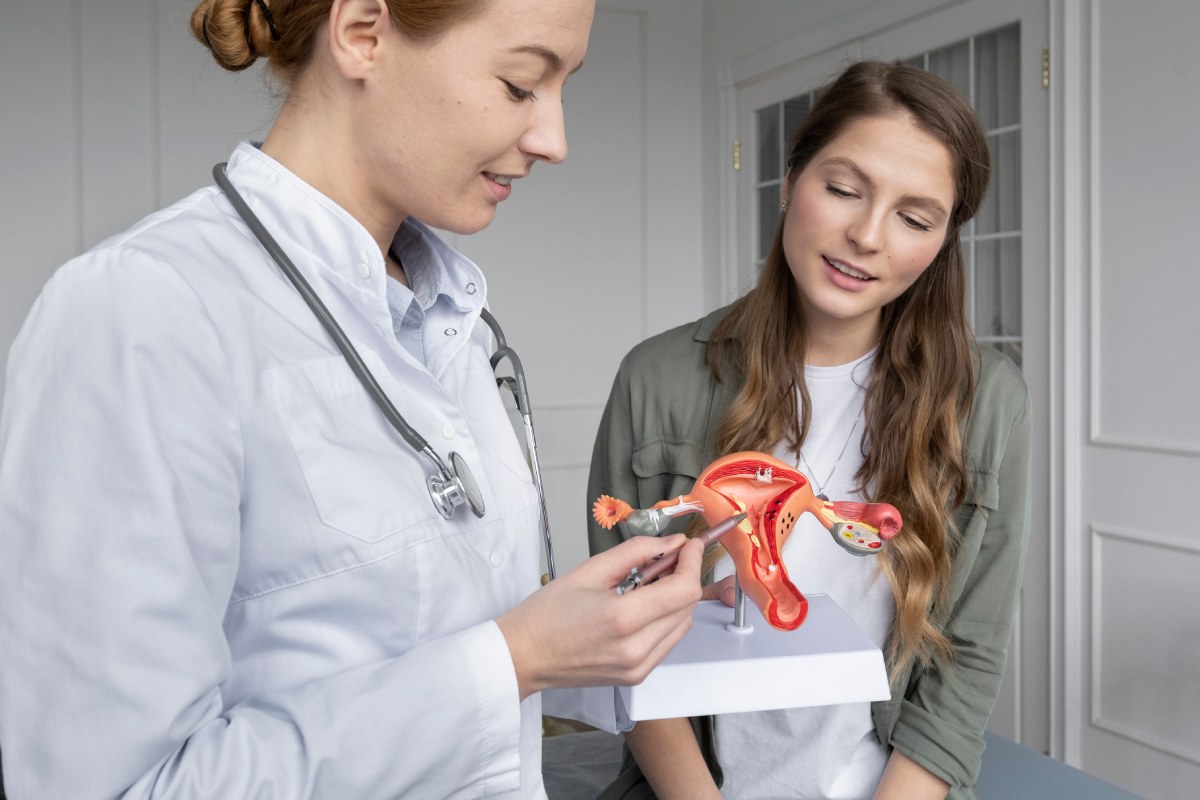
Beat Ovarian Cancer: Your Go-To Resource for Women’s Reproductive Health
Women’s reproductive health is a critical aspect of overall well-being, and one of the most formidable challenges that can arise in this realm is ovarian cancer. Ovarian cancer is a silent killer, often diagnosed at later stages when the prognosis is less favourable. However, armed with knowledge, awareness, and proactive measures, women can take charge of their reproductive health and increase their chances of beating ovarian cancer.
Let’s break down ovarian cancer: Risks, Early Detection and Resources:
1. Understanding Ovarian Cancer:
Ovarian cancer is a type of cancer that originates in the ovaries, the female reproductive organs responsible for producing eggs. While it may not be as common as some other types of cancer, it is known for its stealthy nature, often presenting with vague symptoms that can be easily dismissed. This makes early detection challenging, leading to a higher likelihood of advanced stages at diagnosis.
2. Risk Factors:
Being aware of the risk factors associated with ovarian cancer is crucial for proactive health management. While some factors are beyond one’s control, such as age and family history, others can be influenced. Factors that may develop the risk of ovarian cancer include:
- Age: Ovarian cancer is more common in women over the age of 50.
- Family History: A family history of ovarian or breast cancer may elevate the risk.
- Inherited Gene Mutations: Certain gene mutations, such as BRCA1 and BRCA2, are linked to an increased risk.
- Hormone Replacement Therapy: Long-term use of hormone replacement therapy may be a contributing factor.
- Reproductive History: Women who have never been pregnant or have had infertility issues may face a higher risk.
3. Early Detection:
Detecting ovarian cancer in its early stages essentially improves the chances of successful treatment. Unfortunately, the subtle symptoms and lack of effective screening methods make early diagnosis challenging. Women need to be attentive to their bodies and seek medical advice if they experience persistent symptoms such as:
- Bloating
- Pelvic or abdominal pain
- Difficulty eating or feeling full quickly
- Changes in bowel habits
- Increased urgency to urinate
Go-To Resources for Women’s Reproductive Health:
1. National Ovarian Cancer Coalition (NOCC):
The NOCC is a valuable resource providing information on ovarian cancer, support networks, and educational programs. Their website offers a wealth of resources for patients, survivors, and those looking to learn more about ovarian cancer.
2. American Cancer Society (ACS):
The ACS is a trusted source for comprehensive information on various types of cancer, including ovarian cancer. Their website offers detailed guides, support resources, and information on cancer research.
3. Ovarian Cancer Research Alliance (OCRA):
OCRA is committed to advancing research and advocating for women with ovarian cancer. Their website provides up-to-date information on the latest research, clinical trials, and resources for patients and caregivers.
4. Women’s Health Initiative (WHI):
WHI focuses on women’s health issues, including reproductive health. They offer a range of resources, from educational materials to community support, empowering women to make informed decisions about their well-being.
Closure:
Prioritizing women’s reproductive health requires staying informed about potential risks and being proactive in seeking early detection and prevention. Navigating the challenges of ovarian cancer is more manageable with the right resources. Utilizing organizations such as NOCC, ACS, OCRA, and WHI provides women with access to valuable information, support networks, and the latest research advancements. Empowering women to take charge of their reproductive health equips them to confront ovarian cancer. It’s crucial to remember that knowledge is a powerful tool in the fight against ovarian cancer, and proactive measures can significantly impact women’s lives. Schedule a consultation with your gynecologist today to ensure comprehensive care and stay informed about your reproductive health.